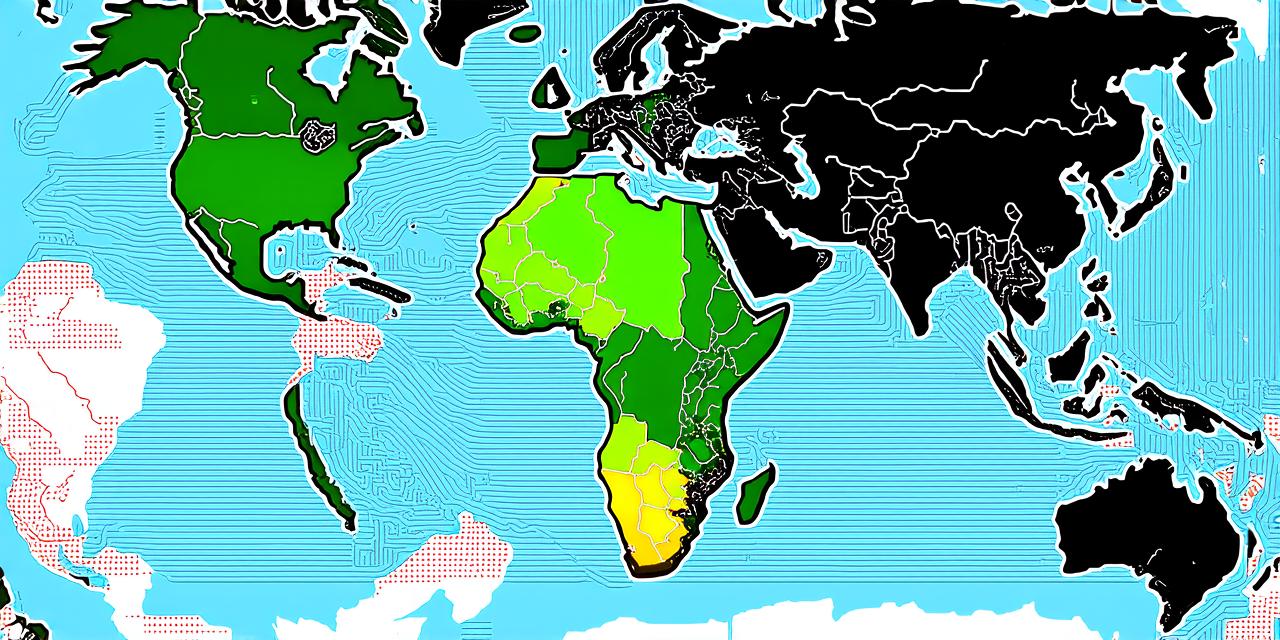Supply Chain Management and Geography: The Importance of Location
One of the primary drivers of outsourcing is supply chain management. Businesses often outsource certain tasks to vendors located closer to their suppliers or customers, as this can help streamline the entire supply chain and reduce lead times. For example, a company that sells consumer goods in North America may choose to outsource its manufacturing operations to China, where labor costs are lower and production capabilities are more advanced.
However, geography can also impact supply chain management in unexpected ways. For instance, natural disasters or political unrest in a particular region can disrupt supply chains and lead to delays or shortages of goods. In such cases, businesses may need to find alternative suppliers or outsource tasks to other regions to ensure the smooth functioning of their operations.
Talent Acquisition: The Benefits of Outsourcing to Talent Hubs
Another factor that influences outsourcing is talent acquisition. Many businesses struggle to find skilled and experienced workers in their own country, particularly in specialized fields such as technology or finance. In such cases, they may choose to outsource certain tasks to countries where the talent pool is more abundant and cost-effective.
By outsourcing to talent hubs, businesses can access a wider pool of qualified workers and reduce their reliance on local labor markets. This not only saves them money but also allows them to tap into the best talent available in the world. However, it is important for businesses to ensure that their outsourcing partners have the necessary skills, experience, and cultural fit to deliver high-quality work and meet their business needs.
Cost Savings: The Impact of Geography on Labor Costs
One of the most significant benefits of outsourcing is cost savings. By transferring certain tasks or processes to an external vendor, businesses can reduce their overhead costs and increase their profit margins. For example, a company based in Europe may choose to outsource its customer service operations to a call center located in India, where labor costs are lower and the time zone difference allows for 24/7 coverage.
However, geography also plays a crucial role in determining labor costs. In some countries, such as the United States or Canada, labor laws and regulations can drive up wages and make it more expensive to hire workers. On the other hand, in countries like India or China, where labor costs are much lower, businesses can take advantage of this to reduce their expenses and increase their profitability.
Case Studies: Real-Life Examples of Outsourcing and Geography
Example 1: A Multinational Retailer Outsources its Logistics Operations to China
A multinational retailer based in Europe decided to outsource its logistics operations to a third-party provider located in China. The company had been struggling with high shipping costs and slow lead times, which were impacting their bottom line. By outsourcing to China, the company was able to take advantage of lower labor costs and access a more efficient transportation network, which led to significant cost savings and improved delivery times.
Example 2: A Software Development Company Outsources its Development Operations to India
A software development company based in the United States decided to outsource its development operations to an outsourcing partner located in India. The company had been struggling to find skilled developers in their own country, and they were able to access a wider pool of qualified workers at a lower cost by working with an Indian partner. This allowed them to accelerate product development and bring new features to market faster.
Example 3: A Manufacturing Company Outsources its Manufacturing Operations to Mexico
A manufacturing company based in Europe decided to outsource its manufacturing operations to a factory located in Mexico. The company had been struggling with high labor costs and slow lead times, which were impacting their profitability. By outsourcing to Mexico, the company was able to take advantage of lower labor costs and access a more efficient supply chain, which led to significant cost savings and improved delivery times.
Expert Opinions: What the Experts Say about Outsourcing and Geography
To gain further insight into the relationship between outsourcing and geography, we spoke with several experts in the field. Here are some of their thoughts:
Geography plays a crucial role in determining where and how to outsource effectively. Businesses need to consider factors such as time zones, transportation networks, and labor costs when deciding where to outsource tasks or processes.
Expert 1
Outsourcing can bring numerous benefits to businesses, including cost savings, improved efficiency, and access to specialized skills and expertise. However, it is important for companies to carefully evaluate their outsourcing options and ensure that they are working with the right partners to achieve their business goals.
Expert 2

One of the biggest challenges of outsourcing is managing cultural differences and ensuring effective communication between teams located in different parts of the world. Companies need to invest in cross-cultural training and establish clear communication protocols to overcome these barriers and ensure successful outsourcing relationships.
Expert 3
FAQs: Answering Common Questions about Outsourcing and Geography
Q: What factors should businesses consider when deciding to outsource?
Businesses should consider factors such as cost savings, improved efficiency, access to specialized skills and expertise, and supply chain management when deciding to outsource. They should also evaluate the risks and challenges associated with outsourcing and ensure that they have the necessary resources and expertise to manage the process effectively.
Q: How do businesses find the right outsourcing partners?
Businesses can find the right outsourcing partners by researching providers in their target geographic regions, evaluating their capabilities and experience, and conducting thorough due diligence to ensure that they are a good fit for their business needs. It is also important to establish clear communication protocols and invest in cross-cultural training to overcome cultural differences and ensure successful outsourcing relationships.
Q: What are some of the challenges associated with outsourcing?
Some of the challenges associated with outsourcing include managing cultural differences, ensuring effective communication, establishing clear performance metrics, and dealing with issues such as language barriers, time zone differences, and data security concerns. It is important for businesses to carefully evaluate these risks and develop strategies to overcome them before embarking on an outsourcing relationship.
Conclusion: The Intersection of Outsourcing and Geography
In conclusion, outsourcing and geography are closely intertwined, and businesses need to carefully consider the factors that impact these two areas when making decisions about where to outsource tasks or processes. By taking into account the benefits and challenges associated with outsourcing, evaluating their options carefully, and establishing effective communication protocols, businesses can achieve significant cost savings, improved efficiency, and access to specialized skills and expertise.
